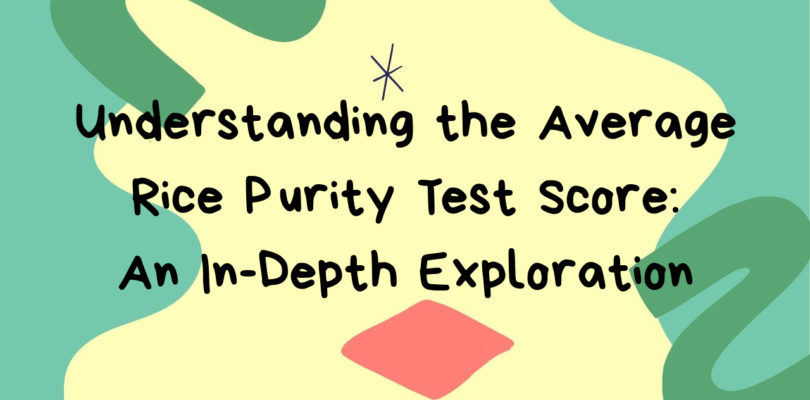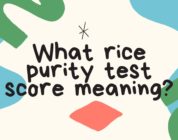What Is the Rice Purity Test?
The Rice Purity Test is a self-graded questionnaire initially developed for incoming students at Rice University. But, what’s the average rice purity test score, and what does it signify?
Unpacking the Test’s Purpose
The Rice Purity Test was initially crafted to measure the innocence of a freshman entering Rice University. Comprising a total of 100 questions, the test covers a vast array of life experiences – with a focus on criminal acts, deceit, and sexual experiences. The higher your score, the more ‘pure’ or innocent you are deemed to be.
So, What’s the Average Rice Purity Test Score?
While there is considerable variation based on demographics and societal norms, the average rice purity test score lies between 45-55. This range typically indicates a moderate level of life experiences, balanced between innocence and exposure. However, remember that this test is subjective and does not define your character or moral compass.
How to Interpret Your Rice Purity Test Score?
Understanding your score can be somewhat of a maze, huh? It’s crucial to remember that this score merely represents life experiences and not an individual’s worth.
Breaking Down the Scoring System
The test employs a straightforward scoring system where each ‘No’ response garners a point. Consequently, the scores can range from 0 to 100, with 100 being the maximum score – indicating the highest level of ‘purity.’
What Does an Average Rice Purity Test Score Indicate?
An average score – between 45-55 – often denotes a healthy blend of innocence and exposure to various life experiences. This score is common among university students, as it captures the traditional college experience encompassing academics, personal growth, and some dabbling in risky behavior.
How Does the Rice Purity Test Score Influence University Life?
You might be wondering, “Why should I care about this score?” Let’s get to the bottom of this.
Impact on Social Interactions
The Rice Purity Test can significantly impact university life, particularly social interactions. In some instances, a lower score might be seen as a badge of honor, indicating rich life experiences. On the flip side, a higher score may indicate innocence or naivety.
Perceived Influence on Student’s Character
Contrary to popular belief, the Rice Purity Test score should not be seen as a direct reflection of a student’s moral standing or character. Remember, it’s just a test, not a judgment on your personality or worth!
The Controversies Surrounding the Average Rice Purity Test Score
The Rice Purity Test, like anything else, isn’t free from controversies.
Critiques on the Scoring System
Some people argue that the scoring system is flawed as it links ‘purity’ with naivety, possibly leading to stereotyping or judgment based on scores. It’s crucial to remember that everyone’s journey is unique and can’t be condensed into a numerical score.
The Test’s Influence on Peer Pressure
An unintended consequence of the test might be the peer pressure it places on students to lower their scores, potentially encouraging risky behavior. A balance between experience and safety is crucial.
Frequently Asked Questions
1. What is the average rice purity test score?
- The average score typically falls between 45-55, although it varies based on individual experiences and societal norms. See average rice purity test score by age.
2. Does a lower score indicate a problematic behavior?
- Not necessarily. A lower score only suggests exposure to more life experiences. It’s not an indicator of one’s moral standing.
3. Can the rice purity test score be used to judge an individual’s character?
- Absolutely not. This test merely showcases a range of life experiences and doesn’t provide any insights into a person’s character or moral compass.
4. Does a higher score indicate a lack of social skills?
- No. A higher score simply implies less exposure to the experiences listed in the test. It’s not a measure of social skills or competence.
5. How often should I take the rice purity test?
- The test is usually taken at the beginning of one’s university journey and can be retaken periodically to gauge changes in experiences.
6. Can the test encourage risky behavior?
- While not its intention, the test can inadvertently encourage risky behavior if misinterpreted as a scorecard to lower through experiences.
Conclusion
Understanding the average rice purity test score and its implications can be a powerful tool for self-reflection and understanding societal norms. However, it’s crucial to keep in mind that it’s simply a reflection of life experiences and not a gauge of character or morality. Remember, we’re all unique, and no number can capture the essence of our journeys.




